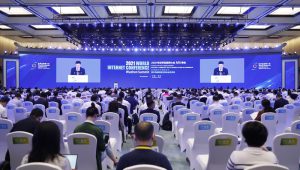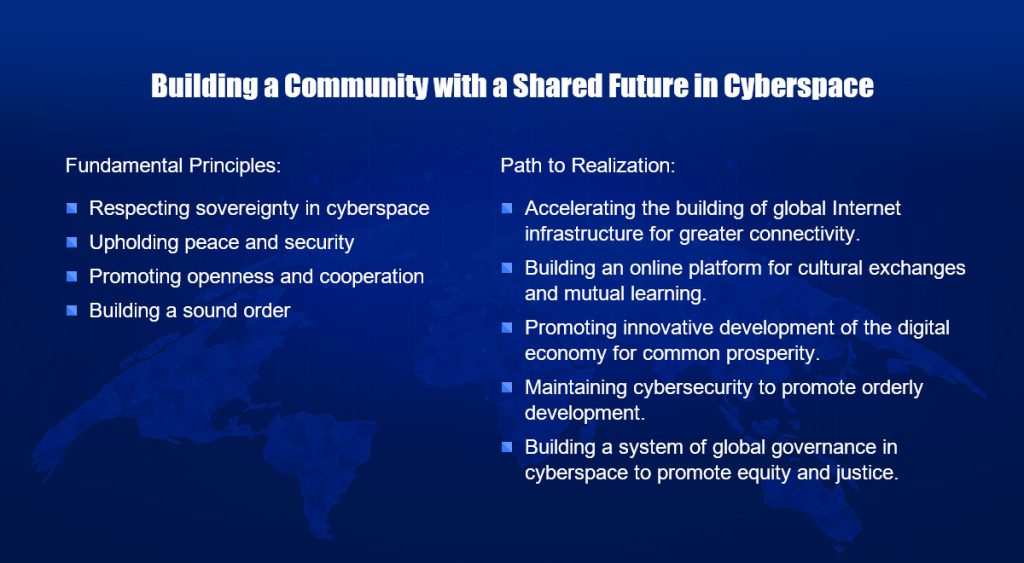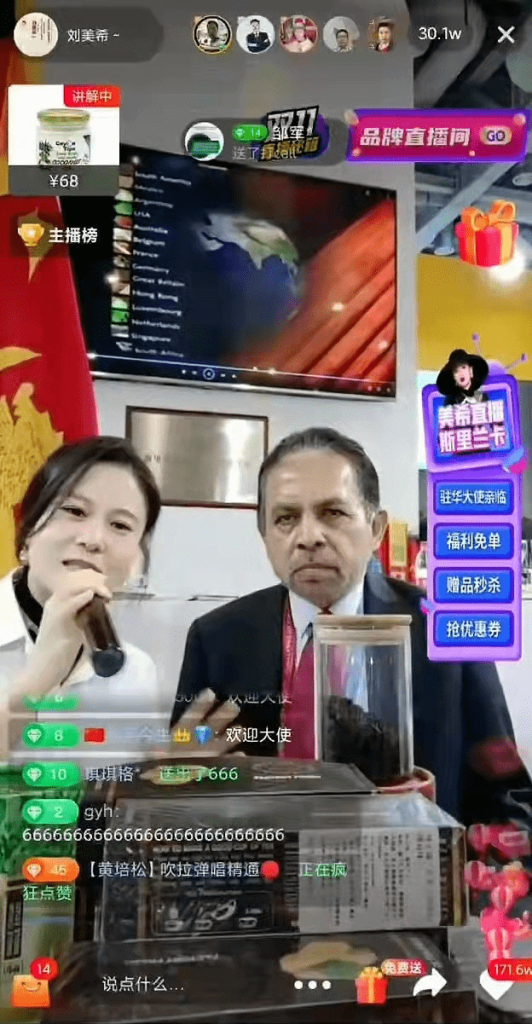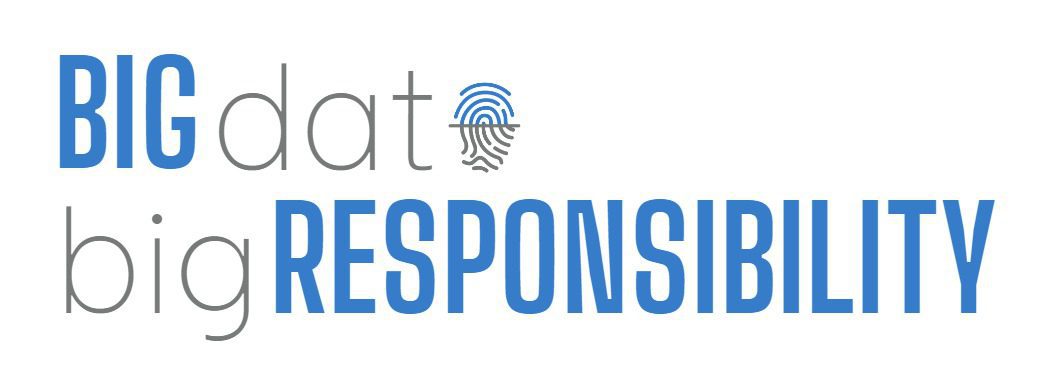Introduction
In a previous post, I introduced how grassroots can utilise social media for poverty alleviation. Poverty alleviation is part of the well-known United Nations (UN) Sustainable Development Goals (SDGs) (United Nations, n.d.c.). Apart from these conventional problems, humanity faces increased and severe challenges in cyberspace. It is now much easier to collect data about individuals, groups, companies, and governments compared to the days prior to the invention of the Internet. Simultaneously, the difficulties controlling and regulating order in cyberspace cause a series of problems, including cyberattacks, digital economy divides, and impoverishment, among others.
We discussed in our group podcast the question: “Who should set the rules and framework to ensure fair representation in the social media sphere?”. Expanding the discussion to a broader sphere, this post attempts to bring more attention to other important topics in international cyberspace. Revolving particularly around the term “development in a digital world” that Tony Robert (2019) used to describe “doing international development in an increasingly digitised context.”
In July 2022, China’s president Xi Jinping congratulated the foundation of the World Internet Conference International Organization. He emphasised that “Cyberspace is about the destiny of humanity, and the future of cyberspace should be jointly created by all countries in the world. China is willing to work with the international community to take this as an important opportunity to promote the construction of a more fair and reasonable, open and inclusive, secure, stable, and vibrant cyberspace so that the Internet can better benefit people from all over the world.” (Yu, 2022).
What is the World Internet Conference?

(At the 2021 WIC conference site. http://www.news.cn/fortune/2021-09/26/c_1211383075_6.htm)
The World Internet Conference (WIC), also known as the Wuzhen Summit, is an annual event organised by the Chinese government that started in 2014. World-leading stakeholders gather to discuss global internet issues and policies. We are witnessing a Global South country taking the lead and setting rules in international cyberspace. Although this was an international event, its visibility in Western media is minimal.
Many critics arose from the West aimed toward the risk of China expanding its model of internet governance. Fear of increased levels of surveillance, or be it restrictions to the freedom of expression. Nevertheless, this event indicates a possibility of reducing West domination while paving the way for other nations – formerly less privileged and powerful – to have more voices in international cyberspace. Hopefully, a diversified cyberspace environment can bring more freedom, equality, and security. It is essential to highlight that the more people involved, the more complicated it is to create a fundamental framework and policy applicable to every stakeholder.
Implications for development
Craig Allen, president of the U.S.-China Business Council, said in a sub-forum of WIC that data is “understood as an essential element to our daily lives as we move through the digital world.” (Wang & Wang, 2021). Big data is closely related to every aspect of our lives, from education and the economy to security and privacy. This post brings up several fields of concern related to WIC, big data, social media, and development.

(Chinese President Xi Jinping’s four principles and a five-point proposal on global development and governance of the Internet)
A concept document entitled Jointly Building a Community With a Shared Future in Cyberspace (Initiative), released in 2021, is an elaborated vision of Chinese President Xi Jinping’s four principles and a five-point proposal on global development and governance of the Internet (World Internet Conference, 2021). The new initiative has four connecting categories: Achieving shared development, Ensuring common security, Realising joint governance, and Enjoying benefits together. All these visions denote a need for increased global cooperation and the creation of frameworks and standards applicable to all stakeholders. That, in the end, should benefit all human beings.
Achieving shared development
“…At the same time, platform companies must act on corporate governance, protection of user data privacy and rights, digital security governance, and other areas of deep concern to the country and society. These are the meanings of ESG.” – Zhang Yong, Chairman and CEO of Alibaba Group, proposed (Xinhuanet.com).
The first section of the WIC initiative emphasises that “we should adopt more proactive, inclusive and coordinated policies that benefit all; speed up global information infrastructure construction; promote innovative development of the digital economy and enhance public service capacity.” (WIC, 2021)
As we know, the current global information infrastructure is far from unified. Countries operate on their standards. Creating an environment that benefits all thus requires cooperation from all stakeholders worldwide. Graham (2019) argued that data is one of the fuels of the new digital economy. Many countries believe that economic development is the key to prosperity. A critical question connected to this belief is whether we should facilitate more openness and transmittability of data or emphasise better protection and governance of data. Digital technologies and data can appear as great tools for development problems. Nonetheless, it can also cause negative effects such as marginalisation, impoverishment, and division (Graham, 2019).
Milan & Treré’s (2019) article brought up the importance of the Souths and how their knowledge of data could contribute to encountering data universalism. The authors also mentioned that data capitalism is a novel manifestation of colonialism. In the same vein as colonialism, data colonialism exploits human beings through data, which is a constant process as long as there are users. The South(s) is understood as “a place of (and a proxy for) alternity, resistance, subversion, and creativity” (Milan & Treré, 2019). Thus, exchanging and understanding the South(s)’s knowledge can facilitate finding critical tools to break the current West domination.
Ensuring common security
“In the future, digitalization will no longer face the simple security issues of the past, but complex security issues. New technologies bring new scenarios, new scenarios bring new challenges, and new challenges require new ideas…” said Zhou Hongwei at the conference, the founder and chairman of the 360 Group (Xinhuanet.com).
Furthermore, point 7 in the WIC initiative states that “… We stand against impairing the critical information infrastructure or stealing important data of other countries through the use of ICTs.” (WIC, 2021).
Cybersecurity is a concern for everyone. Amongst all, cyberattacks on universities caught the attention of Chinese social media a few months ago. The US National Security Agency (NSA) launched a new cyberattack against the Northwestern Polytechnical University in Xi’an, Shaanxi province, stealing a huge amount of high-value data and personal information (Cui, 2022). This university is known for being one of the top in the fields of high tech in China. The news article also mentioned that the NSA has continuously monitored Chinese cellphone users. This kind of privacy intrusion reminds me of the Prism project that Edward Snowden revealed years ago. At that time, this illegal file exposure evoked great attention worldwide. Despite this, NSA today is far from constrictive in its actions.

(US launches cyberattacks targeting China’s Xi’an University. Cartoon: Vitaly Podvitski. https://www.globaltimes.cn/page/202209/1275816.shtml.)
The COVID-19 pandemic explicitly revealed the fragility of privacy in a digitalised world. Governments worldwide are continuously gathering data from citizens, particularly location data, for movement-tracking purposes to control the spread of the virus (Zwitter & Gstrain, 2020). This use of data comes at the price of individual freedom and collective autonomy. Personal information is also extremely transparent on the internet in Sweden. The website Eniro.se is a Nordic digital marketing site. Personal information such as name, birthday, home address, phone number, and even personal number (Swedish citizen number) are streaking on this site. Ironically, I am only allowed to change or remove my information from the website for free if I log in with BankID (online identification APP), meaning that I need to give more data in exchange for deleting existing data.
“…The modernised convention – now quite well known as convention 108+ (anchored in the Universal Declaration of Human Rights) – aims at the convergence of legal systems to ensure appropriate protection for individuals in the digital age, while facilitating the free flow of data for the benefit of our societies economies and sustainable development…” – delivered by Isabelle Servoz-Gallucci in a keynote speech recorded for the WIC (Council of Europe, 2022).
These assets mentioned are frequently used as fundamental building blocks in privacy policies. However, in a rapidly-changing international environment, policies also need rapid changes that can adapt to emerging situations.
Realising joint governance
Point 14 in the WIC initiative states that: “We should look into laws, regulations, rules, and standards to guide the use of new technologies and applications such as artificial intelligence, Internet of Things and the next-generation communications network, and promote international cooperation in technical standards and ethical norms.” (WIC, 2021)
Aside from the technical advances comes the discussion of ethics. Regarding the ethical norms of datafication, Taylor (2017, p.1) raised the idea of data justice, defined as “fairness in the way people are made visible, represented, and treated as a result of their production of digital data.” The three pillars she proposed as the basis of a notion of international data justice involve how to ensure that the governing of the technology and data itself, as well as peoples’ use of it, can be neutral, equal, and just. This proposal is rather optimistic and leads to an extremely tricky problem to solve since technology in itself is not neutral. People’s use of technology adds another layer of subjectivity on top of that.
Amongst many, Ruppert et al. (2017, p.2) understand data politics as “concerned with not only political struggles around data collection and its deployments but how data is generative of new forms of power relations and politics at different and inter-connected scales.”The possession of data and the use of data is a critical topic in the global world. More importantly, having well-functioning global governance should be a top priority. The UN is acting more or less as an international cooperator, connecting nations on international grounds. However, the effect of this international governing body seems weakened. As I discussed in our podcast, a globally applicable standard and framework to ensure fair representation in social media is yet to come. Realising joint governance stands on similar difficulties. A global organisation holding an adequate voice to regulate all nations and to set the fundamental rules and frameworks is extremely difficult to establish due to miscellaneous interests.
Enjoying benefits together
“…We believe that common prosperity is by no means a number. It means that in the next five, ten years, or even longer, we must build on our accumulated digital capabilities and continue solving socially concerned propositions with high-quality development ideas and feasible solutions. As well as using reproducible, measurable, and sustainable mechanisms to deliver our commitments,” said Zhang Yong, Chairman and CEO of Alibaba Group.
Two points within the Enjoying benefits together section echoes with my first post about utilising DouYin (the Chinese version of TikTok) as a strategy for poverty alleviation. The two points particularly of interest read as follows: “Point 16. Sharing the benefits of e-commerce, and Point 18. Strengthening support and assistance to the vulnerable groups and leaving no one behind.” (WIC, 2021). The trend of growing e-commerce was evident with the rise of giant companies such as Amazon and Alibaba. During the last few years, e-commerce in China has become a powerful source of poverty alleviation from the private sector.

(Sri Lanka’s Ambassador Palitha Kohona at the e-commerce live broadcast. https://www.sohu.com/a/504908289_121107000)
In addition to supporting poverty alleviation within China. Chinese live broadcast e-commerce expanded its outreach to helping other countries sell agricultural products. Products from Afghanistan, Rwanda, and Sri Lanka were sold out within an hour during The 4th China International Import Expo Asia-Africa Products Session (Zhu, 2021). This session generated profits that were otherwise hard to gain. Even though technology alone is unable to solve every problem in the world, it does have the potential to solve some of the problems if utilised appropriately.
A new internet order – Global South on the stage
To sum up, we are witnessing an extraordinary time with ever-changing international situations. The U.S. has had a dominating position in cyberspace during the past few decades. Its influence is still huge. However, with the growth of other countries, U.S.’s position is trembling and challenged.
“We should work together to create a shared future that is more responsible and inclusive for all people in the world.” said Omar bin Sultan Al Olama at the conference, the Minister of State For Artificial Intelligence, Digital Economy and Teleworking Applications of the United Arab Emirates (Xinhuanet.com, 2021).
China’s voice on the international ground is growing more powerful than ever before. With WIC, China paves the way for other less powerful countries to be heard on the international stage. Simultaneously, this is also an opportunity to invite other countries to join the new internet order that China visioned. Teamwork is an inevitable cornerstone to success. On the grass-roots level, individuals shall not be neglected in the right to control their data. Neither digital imperialism nor digital exploitation is a healthy track toward sustainable development.
It would be very interesting to hear our audiences’ thoughts and ideas about how the Global South are making louder voices on the international stage.
Reflections from this experiece
First of all, this blog exercise was an extraordinary challenge for my academic learning so far. The audience of my essays has always been teachers and classmates. I always had to write in a formal academic style that I find boring occasionally. As a communication student, I never got the chance to take the role of a development worker (imaginary) to communicate with an audience behind the borders of the university. Thus, I highly appreciate this blog exercise.
I work as a part-time website front-end developer. Thus the technical part of building and maintaining a blog was not challenging for me. On the other hand, adjusting my writing style to the audience was perhaps the most challenging part of the whole exercise. I must constantly remind myself to write an easy-to-read text while integrating interactive elements. Motivating and engaging the audience into interaction with my posts was a valuable experience that I cherish. I could acquire more knowledge about a particular event from different perspectives by interacting with other authors in the comment section. It is through dialogue that we learn new things, after all.
Additionally, it was fascinating that I could capture my previous posts and podcast under the umbrella of my last post about the World Internet Conference, which was a pure coincidence. Nevertheless, this recognition reminds me that everything in development is actually interconnected. Therefore, as a development student and future development worker, I must push myself to learn continuously and accumulate new knowledge.
All in all, this was absolutely a great opportunity for me to grow as a communication for development student. At the same time, I firmly believe that this experience equips me with better tools to conduct future work. Real development works. Hopefully, I would strongly consider starting a personal blog to keep practicing communication with an audience worldwide.
Reference list
Council of Europe. (2022, October 3). Council of Europe data protection approach at the 2022 World Internet Conference Wuzhen Summit. https://www.coe.int/en/web/data-protection/-/council-of-europe-data-protection-approach-at-the-2022-world-internet-conference-wuzhen-summit
Cui, J. (2022, Sep 5). US responsible for cyberattack on Xi’an university, report says. ChinaDaily. Retrieved 3 November 2022, from https://global.chinadaily.com.cn/a/202209/05/WS63160772a310fd2b29e760d8.html#:~:text=The%20university%20said%20it%20found,their%20data%20and%20personal%20information
Graham, M. (Ed.). (2019). Digital economies at global margins. MIT Press.
Milan, S., & Treré, E. (2019). Big data from the South (s): Beyond data universalism. Television & New Media, 20(4), 319-335. https://doi.org/10.1177/1527476419837739
Robert T. (2019, August 9). Digital development: What’s in a name [Blog post]. Retrieved 31 October 2022, from http://www.appropriatingtechnology.org/?q=node/302
Ruppert, E., Isin, E., & Bigo, D. (2017). Data politics. Big data & society, 4(2), https://doi.org/10.1177/2053951717717749.
Taylor, L. (2017). What is data justice? The case for connecting digital rights and freedoms globally. Big Data & Society, 4(2), https://doi.org/10.1177/2053951717736335.
United Nations. (n.d.a). International Covenant on Civil and Political Rights. Retrieved 31 October 2022 from https://www.ohchr.org/en/instruments-mechanisms/instruments/international-covenant-civil-and-political-rights
United Nations. (n.d.b). Universal Declaration of Human Rights. Retrieved 31 October 2022 fromhttps://www.un.org/en/about-us/universal-declaration-of-human-rights
United Nations. (n.d.c). What are the Sustainable Development Goals?. Retrieved 31 October 2022, from https://www.undp.org/sustainable-development-goals?utm_source=EN&utm_medium=GSR&utm_content=US_UNDP_PaidSearch_Brand_English&utm_campaign=CENTRAL&c_src=CENTRAL&c_src2=GSR&gclid=CjwKCAjw5P2aBhAlEiwAAdY7dHr1WevtV1ZCnvvK1D_6U9J8M58Oz4AVsFWhqIjrvSjvBeJptJbo_xoCuN4QAvD_BwE
Wang, T.Y, & Wang, K.L. (2021, September 28). World Internet Conference: Importance of data security in a digital world. CGTN. https://news.cgtn.com/news/2021-09-28/Data-security-a-key-to-digital-network-reliability-13Vn2qukHT2/index.html
World Internet Conference. (2021, October 13). Initiative on Jointly Building a Community With a Shared Future in Cyberspace. https://www.wuzhenwic.org/2021-10/13/c_564467.htm
Xinhuanet.com. (2021). Text Record. Retrieved 3 November 2022, from http://www.news.cn/fortune/2021sjhlwdhzb1/index.htm
Yu, S. (2022, July 12). Xi Jinping sends a congratulatory letter to the establishment of the World Internet Conference International Organization. http://www.gov.cn/xinwen/2022-07/12/content_5700649.htm
Zhu, H.H. (2021, December 2). Sold out before the language is organised! Foreign ambassadors “bringing goods” in Chinese live broadcasts. They are completely confused. Sohu. https://www.sohu.com/a/504908289_121107000
Zwitter, A., & Gstrein, O. J. (2020). Big data, privacy and COVID-19–learning from humanitarian expertise in data protection. Journal of International Humanitarian Action, 5(1), 1-7. https://doi.org/10.1186/s41018-020-00072-6


